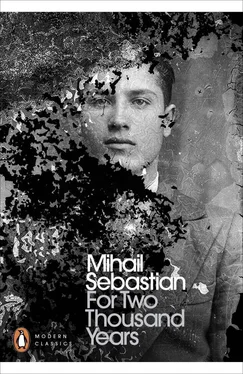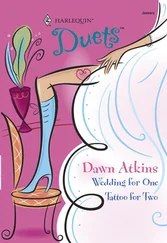It’s time for me to stop. I’ve let myself be carried away and have started making speeches. I’ll start again tomorrow, with less sentimentality.
*
There is in the landscape of the Romanian character a particular region, a particular sensibility, where I feel at home: Muntenia. It’s the point from which the culture of the country can be observed, analysed and judged. Moldova is more fertile, but also more confused: her creative resources are infinitely more complex, but imbalanced, mixed chaotically. There is a coolness to the Muntenian spirit that I gladly recognize to be the rather sterile yet commanding play of intelligence. There’s much more metal in the soil on this side of the Milcov river.
I think there’s more to Pârlea’s hostility than Romanian — Jewish discord. There is also the Moldovan — Muntenian split. I said this to him, and it made him laugh. ‘So, now you’re a Vlach, too.’ I took the joke without offence and decided to think about it properly. If Wallachia is as much a psychological category as a geographical one, and there’s a Wallachian people as well as a Wallachian climate, then I am, in Romanian terms, a Wallachian, a Muntenian. The chaos of Pârlea’s thinking, its obscurity, its leaps, its generous naivety, all derive from an unbridled, lyrical, rhetorical sensibility with which S.T.H., being from Fălticeni, can sympathize directly but which, in the light of day on the Danube plain, looks like the chasing of a mirage.
*
I will never cease to be a Jew, of course. This is not a position I can resign from. You are or you’re not. It’s not a matter either of pride or shame.
It’s a fact. It’s not necessary to forget it. It would be just as unnecessary for someone to contest it. But nor will I, in the same way, ever cease to be from the lands of the Danube. This too is a fact. Whether someone recognizes me as such or not is their business. Their business entirely.
The difficulty does not reside and never has resided in legal recognition of my situation, which is a detail that has nothing to do with me, since I’m not trying to lay claim to anything or have my rights recognized. (I imagine a gathering of willows from the Brăila marshes, asserting their right to be willows.) I know what I am, and the difficulties, if they exist, can only concern what I am, not what is written in the state’s registry books. The state may declare me what it will, but I won’t stop being a Jew, a Romanian and a Danubian. ‘You might be overdoing it,’ whispers my anti-Semitic voice (as I have an anti-Semitic voice, with which I converse in moments of reflection). Certainly, I might be. I’m not saying that the blend is free of any dissonance, I don’t claim that peace between these tendencies is immediate. On the contrary, I know that this agreement is hard-earned, that this cohabitation has personal, internal difficulties. For me, a political discussion of the Jewish problem is completely sterile. I’m only interested in one solution, and it is psychological and spiritual. I believe the only way in which I can clarify any of this ancient pain is for me to try, alone, for my own sake, to comprehend the knot of adversity and conflict with which I am bound up in Romanian life. And I don’t believe this solitariness is an escape, a lack of solidarity with my people. On the contrary, as it’s not possible for the experience of one person who sincerely accepts and lives a drama not to be of some use in lighting the way for all the others. It seems more urgent and effective to me to achieve a harmony in my own life between the Romanian and Jewish parts of my character than to obtain or lose certain civil rights. I would like to know, for instance, what anti-Semitic law could erase from my being the irrevocable fact of having been born by the Danube and loving that place.
Has anybody had greater need of a fatherland, a soil, a horizon with plants and animals? Everything abstract in me has been corrected and, for the most part, cured by a simple view of the Danube. Everything fevered has been soothed and ordered. I don’t know what it would have been like to have been born somewhere else. But I am convinced I would have been different. The example of the regal indifference of the river has risen against my Judaic taste for personal catastrophes. The simplicity of the landscape has countered my inner complications. And insecurity and worry have been shown the ephemeral yet eternal play of the waves.
The image is cheap. Yet, cheap or not, it consoles me still.
I stayed until very late yesterday at Snagov, until everything was finished; the parquet varnished, the windows cleaned, the locks put in the doors. I waited until the people had left one by one and remained alone in the doorway, the last one left.
It is the house I dreamed of. A house built for sunlight. Evenings, its shadow falls across the water, like the shadow of a plant.
Ghiţă Blidaru passed without speaking through every room. We stopped on the terrace, where the September morning spread into the distance, beyond the lake, white in the declining autumn light, as though exhausted by its own splendour.
I was happy that he said nothing to me and I understood from his silence that he felt at home.
It’s a pleasure to build and it’s an even greater joy to say farewell to what you have built.
We will forget each other, my white house in Snagov, you to receive the sun each day through your wide windows, me to put up other walls, just as likely to be forgotten.
Look, this is where our paths separate: you are what I have always dreamed of being — simple, clean and calm, your heart accepting of the coming of every season.












